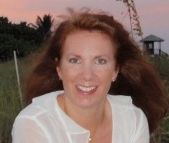You Don’t Have to Analyze The Garbage Before You Throw It Out
Few of us make it through life with a light load. At some point, we intentionally or unintentionally become hoarders.
I don’t necessarily mean hoarders of physical stuff, although that can be part of it. Anything that manifests in physical form has emotional, mental and spiritual components behind the scenes. Even if we’re not physically holding onto things though, most of us carry plenty of emotional baggage. Eventually it’s time to toss it or run the risk of it becoming so bogged down we can’t carry the weight. When that happens we can no longer grow; we become stuck in one place, barely able to move or breathe, like those horrifying scenes from the A&E reality show on the same theme.
The question, always the question, is how? How do you dump the emotional baggage? How do you throw out the mental garbage? How do you take out the trash?
It’s funny, as I see this written in black and white, how ridiculous it looks to wonder how to unload our burdens in the physical world. (True compulsive hoarders aside) we don’t get confused about how to take the trash to the curb or how to put down the heavy shopping bags or how to clean out a closet. We just do it as a matter of course. It’s routine.
How liberating would it be if letting go our spiritual, mental and emotional baggage could be just as easy? Just as routine? I’m here to tell you it can, and to share how.
For those who don’t know me that well yet, I’m a big believer that the truest and best things in life are the simplest. The same goes for the most powerful and effective emotional-garbage-cleaning method I’ve found yet, a process called the Ho’oponopono.
Ho-Oh-Po-No-What?
Let me explain.
About a year ago I was invited to a women’s spirituality group that gathers about once every two weeks near where I live with normally between 15 and 20 women. It’s a fantastic group of ladies comprising different ages, races and stages of exploring or deepening their spirituality, and I felt blessed to have somehow drawn it into my experience. Aside from what you would expect in such a gathering – we meditated, sang, shared problems or stories – the leader would have us repeat a short series of phrases four times immediately after the group meditation:
“I’m sorry
Please forgive me
Thank you
I love you”
Sometimes we’d say it with the “I love you” at the beginning, sometimes at the end, and the rest would stay the same.
Meeting after meeting women would ask why we did this and what the process was called. Tami, the group leader, explained it’s called the Ho’oponopono. It stems from an ancient Hawaiian healing and conflict resolution practice, and that if we wanted to know more we should read the book Zero Limits by Joe Vitale and Dr. Hew Len PhD.
I wanted to know more. I read the book. In the process I cried the entire way through. Yes, two full days and 220 pages of almost nonstop blubbering were not only exhausting but also unbelievably cleansing. I dumped a lot of emotional baggage that weekend. Better yet, I learned how to transform any that was left and how not to accumulate more.
You see, the premise of the book is that the way out of problems, disease and all else that ails us is to be 100% responsible for creating your life moment to moment. Just let that sink in for a second. That means you – yes you – must own everything in your experience. You accept that because it is in your life or even your very awareness, you share responsibility for its existence. It means you can blame no one and nothing for your present circumstances.
If you actually take that to heart and genuinely accept everything that is in your experience (including and especially other people and their problems) this is “a head-warping, mind-opening continue reading on The Accidental Seeker
Karen Talavera is a self-described “Accidental Seeker” who stumbled upon a non-conformist journey of self discovery, spiritual awakening and personal growth after years of living the stereotypical American dream. A writer, entrepreneur, mother and avid international traveler, she draws on the rich and often overlooked experiences of daily life to illuminate opportunities for awakening and share insightful takes on spiritual growth. She writes about these and more on her blog The Accidental Seeker. Karen has been a Huffington Post blogger since 2008. Her writing has appeared there and on Divine Caroline as well as in various blogs and print publications since 2006. She lives in Palm Beach County, Florida where she enjoys soaking up the sun and surf when she’s not either writing, dancing, or off and running on one of her many journeys.










Read 1 comment and reply